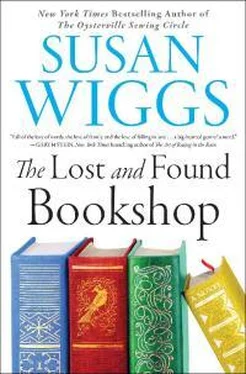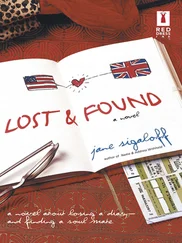Regina’s discontent had hidden behind a mask of ambition—crave more, strive more, achieve more—and his behind long days at work followed by writing and recording and practice sessions. By the time either of them glanced up from their preoccupations, they were looking across a gulf too wide and deep to cross. Eventually, they both agreed that the marriage was over.
But Dorothy. The kid had zero say in the matter. Her world had been rocked by an earthquake and the pieces would never again be put back in place.
The one thing she wanted was the one thing Peach couldn’t give her. And the one thing he wanted was . . . complicated.
“What kind?” Suzzy asked.
“Sorry, what?” He had lost track of the conversation.
“What kind of dog?”
“A rescue, I suppose,” he said. “Not too big. No emotional baggage.”
She laughed. “So, a puppy, you mean.”
“A puppy is a blank slate.”
“Puppies are a lot of work. Ever raise a puppy from scratch?”
“I have, actually. When I was a kid, just a bit older than Dorothy, somebody had a litter of pups in a Publix parking lot, and I brought one home. I caught hell from my parents, but my sister and I convinced them to let us keep him—Buster was his name.” His mother had engaged a professional trainer, and his father had hired a contractor to construct a doghouse and dog run on their Buckhead estate.
The memory reminded him that, before everything had collapsed, his childhood had been a magic carpet ride through blissful ignorance. He’d been raised with no idea that his father was a thief and his mother a maven of Junior League artifice. Neither he nor Junebug had known that their entire life as a family was built on fraud and deception. He had gone to bed each night with his dog curled next to him in a house that felt like a fortress against the world.
Maybe that was the childhood he wanted for Dorothy—a sense of carefree adventure, a secure feeling of knowing what you’d wake up to each morning. He and Regina had not resorted to fraud, of course. But subterfuge? Probably. Not on purpose, but probably.
“Buster was awesome,” Peach said. “Do you think if we got a dog, Dorothy wouldn’t mind the divorce so much?”
“Did you ever consider that maybe Dorothy wouldn’t worry so much about the divorce if her dad was happy?” Suzzy suggested.
“I’m happy and she knows it,” he snapped, annoyed.
“Uh-huh.”
“Shut up and write, Suz.”
“I will. Instead of this dumb rain check idea, I’ll write a song about a guy who likes a girl who works in a bookstore but he won’t tell her.”
“And the clichés keep coming,” he grumbled.
“Quit being one, then,” she said.
* * *
Peach was on a new project in Russian Hill, a restoration job on a 1920s town house that hadn’t been touched, probably since the 1920s. The client and his wife were both physicians—highly successful ones, judging by the budget for the reno.
He was surveying a defunct radiator, trying to figure out the best way to remove the old iron hulk. It was stamped Honeywell Heat Generator , and as he circled it with his Sawzall, he noticed a mushroom-shaped pot was connected to a container on the bottom of the device. Fitting a cast-iron blade into the saw, he was about to get to work when something tweaked a memory. Working on old buildings meant watching for hazardous materials. The little contraption behind the heater might be a big problem.
Setting aside the saw, he did some quick research on his phone. A few minutes later, he realized he was looking at a mercury pot, and it probably contained several fluid ounces of mercury.
“That’s some bad shit,” he muttered. He knew he needed to be careful with the removal so nothing would be released from the unit. Even a tiny pinhole could be a hazard. He kept the thing intact, holding it in a vertical position, and placed it into a thick plastic contractor bag, then put the bag into a five-gallon bucket and surrounded it with sawdust to hold it in place. He labeled it Mercury—do not open . Then he set the thing in a box in an empty shed and called the transfer station to pick it up. The client wasn’t going to be happy with the disposal charge, but it was better than getting mercury poisoning.
He sent a message to his client and stayed late at the job site. Dorothy was at her mother’s, and Peach had nothing going on. He took a break to sit on the front steps and chow down on a burrito. The porch was a shipwreck of peeling paint and broken fretwork, but it was going to be a beauty once he finished. For the moment, it was a fine place to survey the neighborhood despite the winter chill. From his vantage point, he could look down Lombard Street, sloped like a ski jump toward the waterfront.
Natalie had told him that the journals she’d found described a parade of soldiers heading to the docks on their way to the war in the Philippines. Had they been like him when he joined the Marines, vacillating between adrenaline-fueled excitement and gut-deep dread, wondering what they’d gotten themselves into? He’d been barely eighteen when he plunged into twelve weeks of boot camp followed by combat training—and then deployment. He’d been in a daze, having to pivot from his plan to study architecture at Emory to cashing in his college plan so his sister could go to rehab. Natalie had been incredibly gracious when he’d told her about the situation. She was a damn good listener.
Natalie again. His thoughts always seemed to circle back to her. She was the first person since the divorce he actually thought he could love. He actually wanted to love.
His phone buzzed, and his client’s number came up. “Hey, Dr. Jantzen,” he said.
“I got your message about the radiator. Good thing you caught that,” Jantzen said. “Even a little bit of mercury is toxic as hell.”
Peach exhaled a sigh of relief. He’d come way too close to chopping up the unit with his Sawzall. “I followed the guidelines to the letter, except I used sawdust instead of kitty litter when I packed it up.”
“That’s good. If you catch yourself having an epic stomachache or slurring your speech, go see your doctor. There’s a whole host of symptoms associated with mercury, and even just inhaling the vapors can cause organ or neurological damage, anything from mood swings to respiratory and abdominal ailments to tremors.”
“Tremors—like hands that shake?”
“Hands, head, sometimes.”
“Okay. The pickup’s scheduled for first thing in the morning.” Peach put away his tools and locked up, toying with song lyrics in his head. You’re the cause of my tremors and mood swings, baby would never make it onto anyone’s playlist.
When he got in the truck, a slip of paper fluttered down from the visor—a receipt with a logo of the winking sun and the slogan An Eye for Good Books .
Damn.
He wadded up the receipt and tossed it aside. He was just about to head home when something, another tweaked memory, stopped him. He picked up the receipt and smoothed it over his knee.
During his stint in the military, his daily work had been juggling cause and effect. Paying attention to the sequence of things. Andrew Harper—a man with no obvious health issues—suffered a fall. Afterward, he’d moved to a different part of the building—a tiny downstairs apartment. And then his health started to fail. Why?
For decades, the apartment had been used as a storeroom. Andrew’s father had been a compounding pharmacist. Who knew what kind of concoctions and amalgams had been stored there? And later, Andrew had stored things for his typewriter business—acetone and lubricants. But most recently, according to Natalie, the room had been crammed with books, which had been hastily moved out so Andrew could live on the ground floor.
Читать дальше












